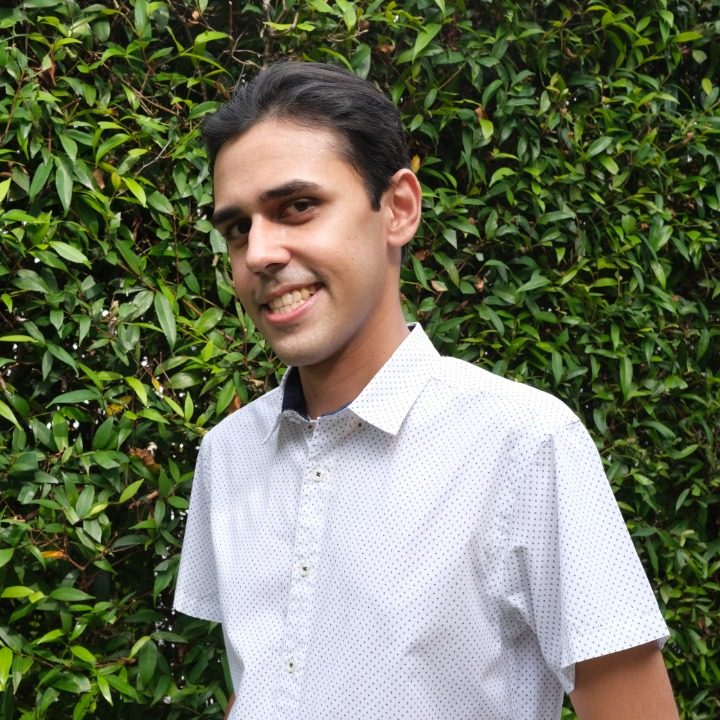Our Story
Welcome!
We’re glad you found us.
Engineers Without Borders Malaysia (EWBM)
was co-founded by three young aspiring individuals, Latifah Hamzah, Lim Sze Wei and Sanjiv Indran in 2012 – and officially registered as a Non-Profit Organisation under Malaysian Societies Act in March 2013.
Engineers Without Borders Malaysia (EWBM) is a non-profit organisation that aims to harness the expertise of students, educators, academics and professionals in Malaysia for engineering projects that benefit local, underprivileged communities with an emphasis on environmental sustainability and community empowerment.


We are affiliated with Engineers Without Borders – International, a globally recognised international federation of national Engineers Without Borders/Ingenieurs Sans Frontier (EWB-ISF) Members Associations.
Our vision is for all inhabitants in Malaysia (and the world in general) to have access to the six primary basic needs, namely: water, food, shelter, energy, education and healthcare.
Our mission is to provide feasible assistance to all communities in need, as well as to connect, inspire and educate like-minded individuals. We are a social platform to encourage Experiential Learning, Appropriate Technology and Community Empowerment.
We are proud to be a part of a global network of other EWB groups through EWB International.
The
Numbers
Speak
For
Themselves
Our Pillars
Vision
To inspire future generations for the betterment of mankind by:
- Expanding our horizons through adventure.
- Understand & to supply six basic human needs of Water, Food, Shelter, Power, Education, and Healthcare to those who do not have it.
- Empower ourselves to push boundaries, while restoring trust and faith in humanity.
Mission
Partner with student organisations and NGOs to provide basic needs to:
- Underprivileged communities through the design and implementation of sustainable engineering solutions.
- Give help to communities in need and raise awareness of social and welfare-related issues in Malaysia.
- Promote engineering and inspire young engineers and non-engineers alike to practice social responsibility.
- Connect like-minded people with a passion for humanitarian work within Malaysia.
Core Values
Making a lasting impact based on the following ideals and beliefs:
- Empathy
- Respect & value the environment
- Committed to Sustainable Development
- Celebrate diversity
- Belief that we can make a difference
- Commitment to social responsibility
Our Focus
Fields of Expertise
Sustainable Development Goals
Ensure inclusive and equitable quality education and promote lifelong learning opportunities for all
Build resilient infrastructure, promote inclusive and sustainable industrialization and foster innovation
Ensure sustainable consumption and production patterns
Ensure availability and sustainable management of water and sanitation for all
Reduce inequality within and among countries
Take urgent action to combat climate change and its impacts
Ensure access to affordable, reliable, sustainable and modern energy for all
Make cities and human settlements inclusive, safe, resilient and sustainable
Strengthen the means of implementation and revitalize the Global Partnership for Sustainable Development

Quality Education
Achieving inclusive and quality education for all reaffirms the belief that education is one of the most powerful and proven vehicles for sustainable development. This goal ensures that all girls and boys complete free primary and secondary schooling by 2030. It also aims to provide equal access to affordable vocational training, to eliminate gender and wealth disparities, and achieve universal access to a quality higher education.

Affordable & Clean Energy
Between 2000 and 2018, the number of people with electricity increased from 78 to 90 percent, and the numbers without electricity dipped to 789 million. Yet as the population continues to grow, so will the demand for cheap energy, and an economy reliant on fossil fuels is creating drastic changes to our climate. Investing in solar, wind and thermal power, improving energy productivity, and ensuring energy for all is vital if we are to achieve SDG 7 by 2030. Expanding infrastructure and upgrading technology to provide clean and more efficient energy in all countries will encourage growth and help the environment.

Reduced Inequalities
Income inequality is on the rise—the richest 10 percent have up to 40 percent of global income whereas the poorest 10 percent earn only between 2 to 7 percent. If we take into account population growth inequality in developing countries, inequality has increased by 11 percent. These widening disparities require sound policies to empower lower income earners, and promote economic inclusion of all regardless of sex, race or ethnicity. Income inequality requires global solutions. This involves improving the regulation and monitoring of financial markets and institutions, encouraging development assistance and foreign direct investment to regions where the need is greatest. Facilitating the safe migration and mobility of people is also key to bridging the widening divide.

Responsible Consumption & Production
The efficient management of our shared natural resources, and the way we dispose of toxic waste and pollutants, are important targets to achieve this goal. Encouraging industries, businesses and consumers to recycle and reduce waste is equally important, as is supporting developing countries to move towards more sustainable patterns of consumption by 2030. A large share of the world population is still consuming far too little to meet even their basic needs. Halving the per capita of global food waste at the retailer and consumer levels is also important for creating more efficient production and supply chains. This can help with food security, and shift us towards a more resource efficient economy.

Clean Water & Sanitation
More and more countries are experiencing water stress, and increasing drought and desertification is already worsening these trends. Protecting and restoring water-related ecosystems is essential. Ensuring universal safe and affordable drinking water involves reaching over 800 million people who lack basic services and improving accessibility and safety of services for over two billion.

Industry, Innovation & Infrastructure
Investment in infrastructure and innovation are crucial drivers of economic growth and development. With over half the world population now living in cities, mass transport and renewable energy are becoming ever more important, as are the growth of new industries and information and communication technologies. Technological progress is also key to finding lasting solutions to both economic and environmental challenges, such as providing new jobs and promoting energy efficiency. Promoting sustainable industries, and investing in scientific research and innovation, are all important ways to facilitate sustainable development. More than 4 billion people still do not have access to the Internet, and 90 percent are from the developing world. Bridging this digital divide is crucial to ensure equal access to information and knowledge, as well as foster innovation and entrepreneurship.

Sustainable Cities & Communities
The rapid growth of cities—a result of rising populations and increasing migration—has led to a boom in mega-cities, especially in the developing world, and slums are becoming a more significant feature of urban life. Making cities sustainable means creating career and business opportunities, safe and affordable housing, and building resilient societies and economies. It involves investment in public transport, creating green public spaces, and improving urban planning and management in participatory and inclusive ways.

Climate Action
There is no country that is not experiencing the drastic effects of climate change. Greenhouse gas emissions are more than 50 percent higher than in 1990. Global warming is causing long-lasting changes to our climate system, which threatens irreversible consequences if we do not act. Supporting vulnerable regions will directly contribute not only to Goal 13 but also to the other SDGs. These actions must also go hand in hand with efforts to integrate disaster risk measures, sustainable natural resource management, and human security into national development strategies. It is still possible, with strong political will, increased investment, and using existing technology, to limit the increase in global mean temperature to two degrees Celsius above pre-industrial levels, aiming at 1.5°C, but this requires urgent and ambitious collective action.
Our People
Engineers, Academicians, Professionals, Students, Change-Makers – You don’t have to be an Engineer to engineer our future!





















